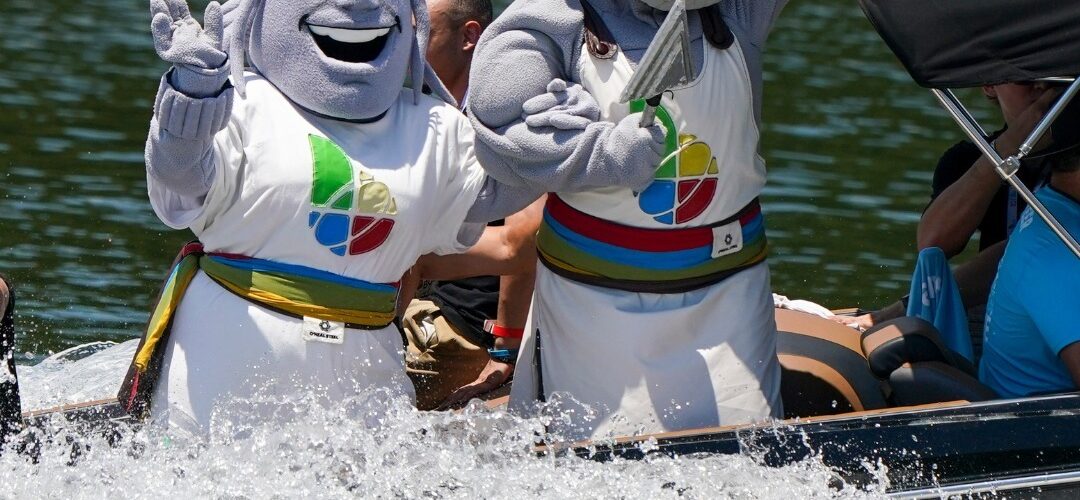Water skiing just lost the World Games. Maybe we deserved it.

Wakeboard, Wakesurf, and Cable Wakeboard, all took place in Chengdu, China, from August 7–17, 2025 (image: IWWF)
By Jack Burden
The knives are out for the IWWF. They always are. This time, it’s over water skiing’s absence from the 2025 World Games in Chengdu. Forty-plus years of tradition gone, replaced by wakesurfing’s debut. Another bureaucratic misstep? Another case of bad leadership? That’s the easy take — and the one our sport seems most eager to reach for.
You’ve heard the grumbling: How could they let this happen? Don’t they know water skiing was one of the Games’ founding sports? We take it personally because it feels personal — a door slammed in our face after decades of loyal attendance. And yes, the decision was made in consultation with the IWWF. And yes, the optics are ugly. But let’s not pretend this was a bolt from the blue.
The World Games is a product, not a sentimental reunion. It exists to fill stadiums, sell tickets, and justify broadcast time. In that context, swapping three-event skiing for wakesurfing isn’t madness — it’s arithmetic. Wakesurfing needs less infrastructure. It plays better in urban venues. It comes with a soundtrack and an image package you can sell on TikTok. And China, our host, has a ready-made roster of wake athletes but exactly zero active three-event skiers. The organizers didn’t choose wakesurfing to spite us. They chose it because it fits their event better than we do.
Here’s the harder question: why wouldn’t we fit?
For years, our competitive structure has been almost aggressively insular. Our tournaments are for us. Our coverage is by us. Our audience is… well, mostly us. Many in the sport barely flinched when the news broke. The World Games? Please. It’s an outcasts’ Olympics, they say — full of fringe and gimmicky sports nobody watches unless they stumble across them on TV.
But that’s exactly the point. The World Games gave us legitimacy in the wider sporting world. In more than a few countries, national federations used our place in the Games to justify government funding. And when was the last time water skiing got real terrestrial TV coverage? For those still pining for the ESPN Hot Summer Nights era, this was as close as we’d come in decades. Now it’s gone.
Wakesports have embraced spectacle and accessibility; we’ve clung to purity and tradition as if they were a form of currency the real world still accepts. They aren’t. Not to the World Games, and not to any outside partner who needs more than nostalgia to justify a slot.
So, yes, the IWWF could have fought harder. Maybe they should have. But what exactly were they supposed to fight with? A product that hasn’t been meaningfully reimagined in decades? A fan base that barely exists outside our own families and training partners? A sport whose public face is often a locked gate to a private lake? That’s not leverage. That’s a liability.
And now we’re talking about the Olympics. “We are actively bidding for inclusion in Brisbane in 2032… we might have an actual chance to get in there,” IWWF President Jose Antonio Perez Priego said recently. Encouraging words — but when your most recent headline is We just lost the World Games, it’s hardly the kind of momentum you want for an Olympic pitch.
The truth is we weren’t pushed out — we drifted out. Slowly. By choice. By choosing to play only to ourselves. By defining “success” as keeping the same people happy instead of adding new ones. By treating the outside world as a distraction rather than an opportunity.
If losing the World Games feels like a punch to the gut, it should. But don’t waste your energy swinging at the IWWF. This isn’t a one-off scheduling decision. It’s a preview of our future if we keep doing exactly what we’ve been doing.
Because if we want to stop losing places — at the World Games, in media coverage, in the public imagination — we’re going to have to start competing off the water as fiercely as we do on it. Otherwise, this won’t be the last goodbye. It’ll just be the latest.





